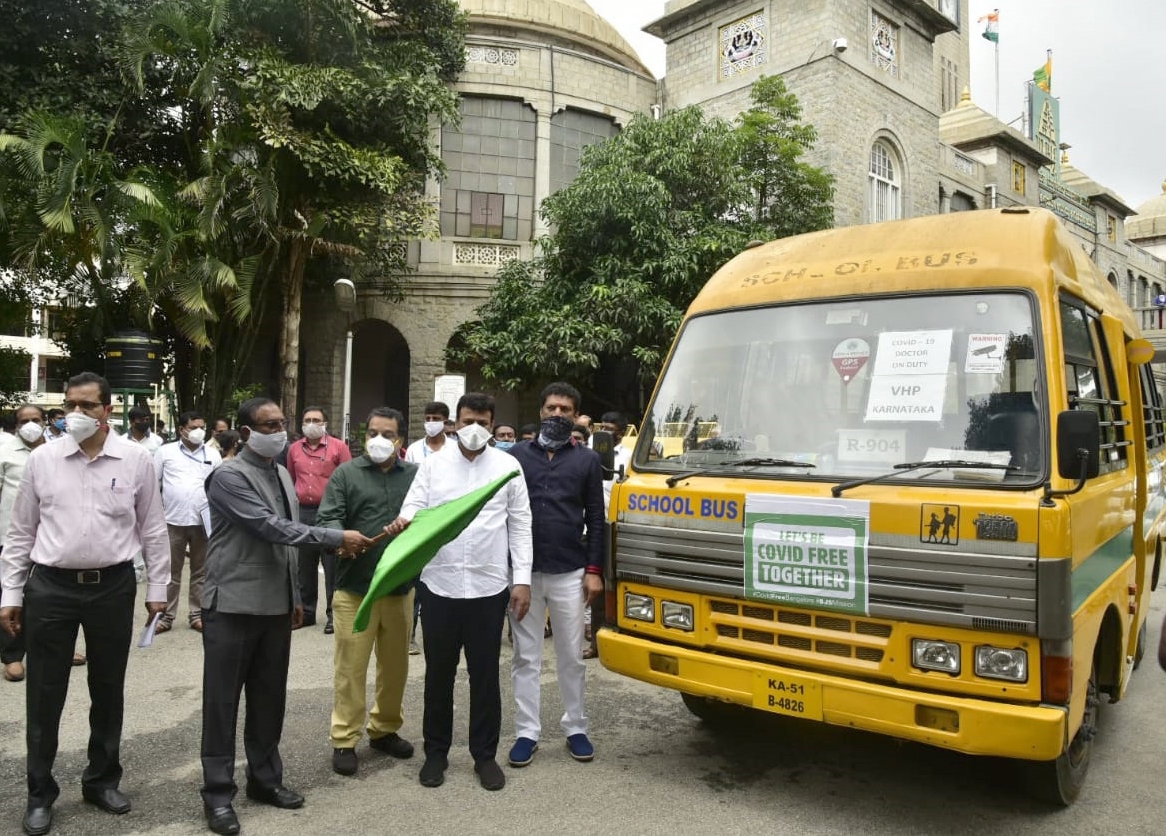Public is finding it difficult to get support from governments.
Though the Centre is ready to rollout Unlock-3 in a fortnight, several cities and towns in the South are witnessing a spate of localised lockdowns, voluntarily called by different sections of society like retail traders and wholesale merchants and some gated community residents. Not just urban areas, even villages, too, are enforcing voluntary lockdowns till and beyond 31 July, to contain Covid-19.
As Covid positive cases are on the rise and shortage of beds in government and private hospitals continued four months after the first nationwide lockdown, several southern states are faced with a plethora of islands of local lockdowns, thus adversely affecting supply chain mechanisms of medical infrastructure and healthcare systems too.
In Bangalore, as many as 20 local markets, most of them wholesale and retail shoppers on busy markets like MG Road, are in lockdown mode since July first week. All big shopping malls have either shutdown or scaled down their operations, restricting up to 5 pm or so. Cloth merchants in Mysore and Mangalore, too, are in shutdown mode. On Thursday, Karnataka saw 4,169 new cases, adding to a total of 51,422.
Some rural Karnataka districts like Raichur, Kalaburagi and Dharwad are observing localised lockdowns since June, though the government has allowed reopening of shops. The state government is in a tricky situation on whether to oppose or support these localised versions of lockdowns. As these shutdowns are backed by public demand, finally the B.S. Yeddyurappa-led BJP government backed these restrictions.
Kerala which initially heaved a sigh of relief over the controlled situation is back to restrictions, directly and indirectly. Several towns of this highly literate state are on complete shutdown mode on weekends, while others are prohibiting outsiders from entering their limits. Big cities like Kochi and Thiruvananthapuram are now back to March-April days. On Thursday, as many as 722 cases were added to a total 10,275.
Inter-state buses that connect Kerala with other neighbouring states Karnataka and Tamil Nadu are now off roads. Even the government is not allowing private vehicles to enter the state unless they have permissions from higher-ups. Enhanced testing is producing more positive cases and there is severe shortage of beds for them all. More than 10,000 positive or suspected persons are in home-quarantine.
Chennai is a classic example of how people voluntarily prefer lockdowns, though they were badly hit economically. Right from 1 June, when the Centre has encouraged states to gradually open up, this city is reluctant to ease restrictions, largely because of public being not ready. The people are alarmed over the ever-increasing number of Covid cases, next only to Maharashtra and Gujarat.
Most areas of Chennai city are shutdown for the last few weeks, as shoppers are not willing to open up due to two reasons—one, lack of customers and second, fear of virus spread. The Tamil Nadu government, too, is backing these traders’ decision to close; it eases pressure on hospitals. Many AIADMK ministers are clueless about the restrictions in the city. On Thursday, Tamil Nadu added 4,549 new cases, to a total 49,000 active cases.
Hyderabad, too, is no different. Though there is no official lockdown anywhere in Telangana, Hyderabad is almost shutdown and all major shopping areas are deserted. Most wholesale traders in Begum Bazar or RP Road have declared shutdown till July end, while several others like authorised service centers of leading brands are closed. On Thursday, Telangana recorded 1,676 new cases to a total of 41,018.
Major Andhra cities like Visakhapatnam and Vijayawada, too, are 75% shut. Daily floating population to the cities has stopped, while local people are unwilling to come out of their homes, thus enforcing a sort of curfew-like situation on the streets. Sudden spate in deaths in AP for the last few days is further aggravating the situation. On Thursday, AP witnessed 2,593 cases to a total of 38,044.
These voluntary lockdowns are signs of helplessness on the part of the public who find it difficult to get any kind of support from governments. Absence of proper information, shortage of medicines and other supplies like oxygen cylinders and shortage of beds in hospitals are compounding the problem. Sudden spike in prices of essential drugs by four to 10-foldis another concern to public.
Coupled with this is a spate of selfie videos by those who were admitted to hospitals recounting their harrowing experiences there—those too are scaring away people. Within a span of two days this week, two youths in Hyderabad had died after posting selfie videos on social media. Incidentally, both had died for want of oxygen supply at hospitals.
Delay in admissions to hospitals, too, is a reason for public fear of Covid. Most government hospitals insist on test reports confirming positive status of a patient, while the laboratories take more than four days to give test findings. All these developments are compelling the public to go for a safe mode—a voluntary lockdown even if it costs their livelihood. Governments can avoid these local lockdowns which cause enormous economic damages by addressing the concerns of the public. Putting in place a mechanism to ensure improved testing, better coordination of hospital admissions and treatment at government healthcare institutions and regulated supply of essential drugs and material can instil confidence among the public.

